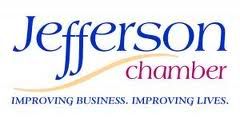 Everyone dreams of that perfect little retirement home in the relaxing tranquility of some quaint town on the shores of something beautiful. Ahh, yes. We can picture it now. The feel of a cold drink in our hand and the sun beaming down on our face. The birds are singing and the waves are lapping at the shore. Then suddenly, “Pop!” What was that, you say. That was the sound of that dream bubble bursting for the 1.5 million older and retired Americans that have lost their homes to foreclosure along with much of the financial security that came with them.
Everyone dreams of that perfect little retirement home in the relaxing tranquility of some quaint town on the shores of something beautiful. Ahh, yes. We can picture it now. The feel of a cold drink in our hand and the sun beaming down on our face. The birds are singing and the waves are lapping at the shore. Then suddenly, “Pop!” What was that, you say. That was the sound of that dream bubble bursting for the 1.5 million older and retired Americans that have lost their homes to foreclosure along with much of the financial security that came with them.
The reality is that, for many older Americans, their dream scenario has turned into a living nightmare. Instead of visions of beach houses or lakeside homes, many retirees find themselves clinging for dear life to the homes they have inhabited for years. The housing crisis knows no boundaries, and it has certainly proved that by inhabiting the lives of many retired and soon-to-be retired individuals. Unfortunately, the tidal wave of foreclosures continues to splash through the 50+ age group.
The AARP released a report outlining the foreclosure climate in the lives of older Americans and the results were a little frightening. Over 1.5 million of them have already lost their homes. Currently, about 600,000 people in the 50+ age group are in foreclosure, while another 625,000 are over 3 months behind on their mortgage payments. 16% of all 50+ Americans currently owe more than their homes are worth.
These numbers are not what many Americans are accustomed to. The proportion of seriously delinquent loans held by older Americans has risen over 450 percent over the last five years. Many of these people have gone their whole lives with nearly perfect credit, but have now hit a solid wall of debt that doesn’t seem to be budging. Things aren’t getting any easier with age. Among Americans 75 and older, one in every 30 homeowners are in foreclosure. Five years ago, that proportion was just one out of every 300. The numbers are hurtling downward at an alarmingly fast rate, and they don’t seem to be slowing.
These statistics are more than just ink on paper. They are seriously altering the lives of many retirees, forcing some to re-enter the workforce or drastically change the budgets they had planned out years earlier. Their retirement dreams have disappeared and they are simply trying to stay afloat.
The report showed that younger Americans are struggling as well, but the number of older Americans entering the dreaded foreclosure zone is increasing at a much faster rate. One of the main questions is simply, “Why?” Why are so many older Americans falling into trouble? What’s the problem?
The problem is that many of these people set their budgets and their retirement plans before the economy, well, you know. Most of them are living on a fixed income and quickly find themselves plowing through their retirement savings. The income from their investments has been drastically cut, but their house payments have not. Picture this: the faucet of their main source of income has slowed to a drizzle, but the drain of payments remains wide open. It doesn’t take a financial expert to realize that it’s only a matter of time before the pool of funds will be completely dried up.
That can be a pretty disheartening image, but the bursting of the housing bubble doesn’t have to burst your bubble of retirement dreams, you simply might have to alter your path to get there. Planning for these difficulties ahead of time can drastically reduce the struggles you could face. Many people approaching retirement can analyze their investments based on earnings and interest rates of the current market and forecast their plans more accurately. It might not be as pretty, but it’s a more realistic picture of what things will look like.
The most important thing is to not be blinded by your dreams, but use them as your vision to create a plan that works for you and your future. With some planning and a little creativity, you could find yourself livin’ the dream in no time!
Photo courtesy of propertyqwest.com







